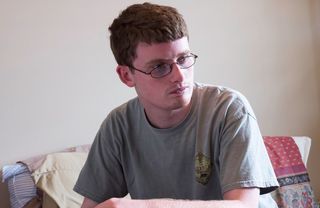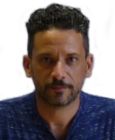Autism
Fresh Thinking on Autism
The documentary film "Deej" challenges us all to live inclusion.
Posted August 8, 2018
Deej, a Peabody Award-winning and Emmy-nominated feature-length documentary, offers fresh perspectives on autism, inclusion, disability, and neurological diversity. A collaboration between Director Rob Rooy and Writer/Producer David James Savarese, the film has aired on PBS and at festivals across the country, where it has garnered numerous awards.
Savarese—also known as DJ or Deej—is the primary subject of the documentary. While the film is about his experience and education as the first non-speaking graduate of Oberlin College, DJ expresses ambivalence about this role. His mission is a collective one, to "free my people"—in other words, to create a world of full inclusion for autistic people. In his words, "Inclusion should not be a lottery."
Savarese is acutely aware that he won the inclusion lottery. Abandoned by his birth mother at age 3, he was adopted by loving parents committed to his thriving. Many non-speaking autistic children, dismissed as unintelligent or simply too difficult to live with, are institutionalized—or simply don't have access to the care and education that makes a life like Savarese's possible. Deej offers a concrete portrait of one young man's experience with inclusion—and, importantly, makes it clear that we are a long way from Savarese's dream of full inclusion: "I have a lot of work to do. Neurotypical people have work to do too. Hope lives on, messy, imperfect."

Savarese is a poet—he's the author of A Doorknob for the Eye—and he talks like one. His conversations—enabled by assistive technology that speaks what he types—are threaded with poetic phrases he's coined. The film trains viewers to learn his poetic language. "Molding free" means remaking the world so that people with disabilities experience full inclusion. "Dear self" is a person acting with kindness. "Reasonable self" is the part of DJ who fully understands neurotypical norms even when sensory or emotional overload spurs him to break them. "Easy breathing" means feeling good, free from anxiety. "Fresh thinking" means overcoming prejudice and stigma that surrounds so-called disability, envisioning a world free from their misperceptions. For example, DJ recognizes Oberlin, with its "golden campus," as a fresh-thinking institution, where inclusion is a continuous aim.
Throughout the film, Rooy portrays DJ's family, friends, peers, and teachers adapting to his way of being. They learn his language. They familiarize themselves with his assistive technologies. They learn to interpret his body language and vocalizations. Much of this adapting is easy enough. It's not hard to learn the meaning of "molding free"—or to enjoy the poetry of the phrase. But it would be just as easy to dismiss DJ's poetic language as "incorrect" or ungrammatical. It's not hard to understand that speech and intelligence are two different things. But it requires fresh thinking to overcome prejudices that have led people to equate them.
Reading DJ's body language requires more time and intimacy. Relating to him when he's overwhelmed by "a perpetual blizzard of detail" or "exposed to the gawking of strangers" is difficult for anybody, including his parents. Molding freedom, the film suggests, requires both minor adjustments to our expectations regarding language and communication and major ones like embracing an active, relational, and collective empathy.
That kind of empathy sounds nice, but it's not easy. DJ's parents model it joyfully when they celebrate with him after he receives the letter admitting him to Oberlin. They model its more difficult moments throughout a series of scenes depicting college interviews, during which DJ becomes overwhelmed, fidgets, gets out of his chair, and finds it impossible to communicate—at least in words. In his retrospective narration, DJ describes these moments as extremely difficult to watch. The scenes illustrate a crucial point: Molding freedom requires sustained effort. It's not only worth the effort, but necessary.
Deej has been nominated for an Emmy for its graphic design and art direction. Its animated sequences, by Em Cooper, give visual form to some of Savarese's poetry. In his words:
"Em and I realized that the animation could function as a foil to the realistic mode of the film, inviting viewers to get behind what the camera appears to register about autism. Because the camera can’t help but stare, another visual medium might better align with the autist’s point of view."
In personal terms, Savarese says, "Em made the me I knew and loved visually come to life."
Cooper describes the unique power of animation, "the slippery combination of words and paint," to portray mental life: "images can form and melt, sliding into one another like fleeting thoughts. Punctuating the film with these sequences reminds us that the footage we see through the camera lens is only the exterior"—a description that resonates with Richard Linklater's Waking Life, a film acclaimed for its animation of the shifting realities of dreams.
At its core, Deej asks viewers to be their dear selves, to become fresh thinkers, to mold the world free. I asked him in an interview what advice he has for people who want to advocate full inclusion:
Interdependence is my model. Make sure all members of the community feel needed. We all need to feel loved and included—not just nonspeaking kids. Ask yourself why sad selves can’t get free from anxiety. Learning is not hard, but it requires a sense of commitment. It’s not always easy, but we all love being a necessary part of something bigger than ourselves, and when we are, the community—and each of us—is better for it.




